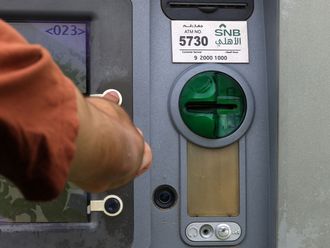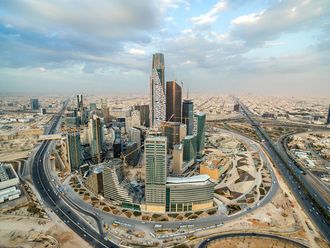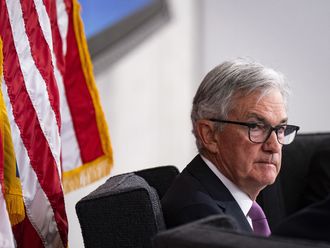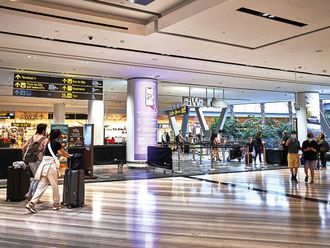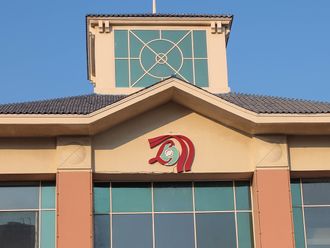
Dubai: The UAE health care market is expected to grow from Dh11.7 billion in 2005 to Dh43.7 billion in 2015, according to a recent report by the Dubai Chamber of Commerce and Industry.
A growth in Dubai's population thanks to an influx of expats has put a huge pressure on the health care infrastructure. Initiatives introduced by Dubai such as the setting up of free zones like the $3 billion (Dh11 billion) Dubai Health Care City and $400 million DuBiotech have succeeded in attracting leading medical research institutes, pharmaceutical companies and biotech companies.
Dubai Health Care City's (DHCC) presence has attracted international health care brands including Mayo Clinic and Great Ormond Street Hospital as well as leading pharmaceutical and medical technology suppliers such as Johnson and Johnson, Novartis and Novo Nordisk.
"When fully operational, the Dubai Health Care City will continue to attract a large number of patients from the Middle East because of the international institutes that have set up base there," Dr Azad Moopen, chairman of DM Healthcare, told Gulf News.
Well on the path to becoming a regional medical centre, the city is expected to add 17 hospitals with 2,325 new beds in 2010, according to Grant Thornton's 2009 Healthcare Guide. This follows a fast-track industry expansion which saw 65 hospitals set up in the UAE to add to the 7 that existed in the 1970s.
However, if Dubai is to maintain its level of health care, a report by McKinsey estimates that by 2025 the need for hospital beds will more than double to about 165,000 and treatment demand will rise 240 per cent. This will push up health care costs five-fold to $60 billion.
A major problem faced by Dubai's health care industry is its lack of locally-trained personnel. "Historically the GCC states have responded by recruiting foreign medical staff, mainly from the West but increasingly from the Indian subcontinent and the Philippines," Hesham Farouk, partner at Grant Thornton, UAE, told Gulf News.
While DHCC has succeeded in attracting educational institutes such as Harvard Medical School and has been able to recruit the services of internationally recognised health care brands, Dubai still suffers from a lack of local expertise.
"There is an insufficient local population willing to undertake the training required to generate the extra health care professionals," says Farouk. He adds that a transient expatriate population compounds this problem as trained personnel leave the country regularly for better opportunities elsewhere.
Need for incentives
"Dubai needs to provide more incentives for people to be locally trained to work in the country. We need to find a way to retain our medical expertise," Dr B.R. Shetty, managing director and CEO of the New Medical Centre Hospital, told Gulf News.
By improving its medical infrastructure, Dubai is hoping to attract patients from neighbouring countries. According to Grant Thornton's 2009 Healthcare Guide report, Arabian Gulf citizens spend an estimated Dh91.8 billion a year for treatment abroad.
"Global medical tourism is picking up in countries in Asia such as India, Thailand and Singapore, which offer medical care for a fraction of the price," states Farouk in the report. "Until recently, the Middle East has been a major consumer rather than provider of health care services. Now governments in the region, particularly in the UAE, are hoping to reverse this trend."
Progress is being made by focusing on improving and building health care infrastructure. Reforms such as the introduction of an international accreditation and certification organisation, the Joint Commission International (JCI) is increasing confidence in the market internationally.
The JCI has now accredited 16 hospitals in the UAE. All of them with the exception of the American Hospital, Dubai, which was accredited in 2000 have been accredited in the three years since May 2006.
The UAE's main challenge in the field of medical tourism is that its competitors have already established a good reputation. According to the report, Thailand saw 400,000 medical tourists in 2006 while Singapore received 410,000 was and is aiming to attract one million by 2012.
Prices of surgery in the UAE, however, still have some way to go to stir serious interest. According to the report, the average cost of a by-pass surgery in the UAE is $44,000 compared to $18,500 in Singapore, $11,000 in Thailand, $10,000 in India and $9,000 in Malaysia.
How do you rate the standards of healthcare in the UAE? Do you think this new investment will make healthcare more affordable?






